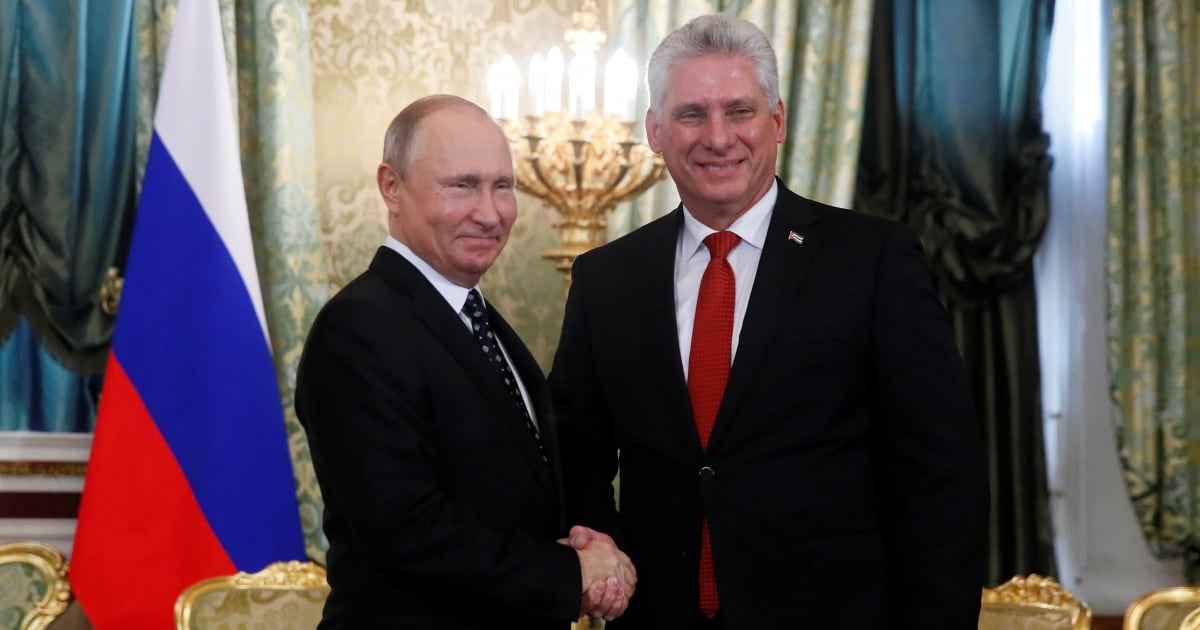
Two more dropouts have joined the wave of abandoning studies among Cuban students on scholarships from the Havana regime in Russia, with a stipend that always arrives late, but this time is delayed just before winter.
The last payment from the Cuban government was supposed to be made to the students last July, but the beneficiaries have not yet received it and find themselves, in the midst of a general drop in temperatures, without money and without permission to find a job to earn a salary for survival, something that is strictly prohibited and punished.
The latest escapes have been led by two students who have already arrived in Dubai, according to sources from CiberCuba, students enrolled in Russian universities in fields related to oil, transportation, innovation, science, or the tobacco industry.
The rate of desertions is constant, the same sources assure, who recall that last year, out of 12 scholarship recipients, two graduated and only one returned to the Island. Most stayed in Russia after marrying nationals from that country.
Despite not receiving the payments that the Cuban regime has committed to, students must pay between 2,000 and 3,000 rubles monthly for the residence where they live in precarious conditions. They also have to bribe the Russian police, who continuously detain them and ask for money to release them, accusing them of being illegal immigrants, especially if they are caught in neighboring areas to Moscow, which the Cuban embassy in Russia prohibits them from visiting.
But many bypass the prohibition because they work on the side in border areas to be able to eat while they wait for payment from the Cuban government, which, as explained by an official, is authorized, but there is no liquidity to make it effective. When they finally receive the payment in euros, they are obliged to exchange it for rubles and then they have to continue exchanging it into the currency they need. In the back-and-forth exchange, they lose money. Moreover, some, the few, come from humble families and must set aside a portion of their stipend to send it to Cuba so that their loved ones can eat.
With the Russian winter just around the corner, Cuban authorities still have not paid the stipend that students were supposed to receive in July, which further strains their economies. "We were so cold that we spat out blood clots," commented a former scholarship recipient who now lives in the United States. After abandoning his studies upon realizing that what was promised on the Island had nothing to do with what he found in Russia, José Alberto Ferrán returned to Cuba, bought a ticket to Nicaragua, and entered the United States through the border with Mexico. He now lives in New Jersey.
According to what Ferrán told CiberCuba, it was an honor for him to be selected among all the Industrial Engineering students from Pinar del Río to go study in Moscow. In Cuba, they told him he would finish his studies at Lomonosov State University, but what they didn't tell him was that they were going to put him on a plane in December, right in the middle of winter, with temperatures below zero, without money and without a coat to go study at a university on the outskirts of the Russian capital.
Moreover, the degrees obtained in Russia do not have international validity, and those who left their studies and returned to the Island have encountered obstacles in re-enrolling at their former universities. Discouragement is widespread. Those who accepted the scholarships committed to "maintaining appropriate behavior in accordance with the values of the Cuban Revolution." The regime, for its part, signed its commitment to provide them with financial assistance, but made a caveat: it will depend on "the specific conditions of the country."
What do you think?
COMMENTFiled under: